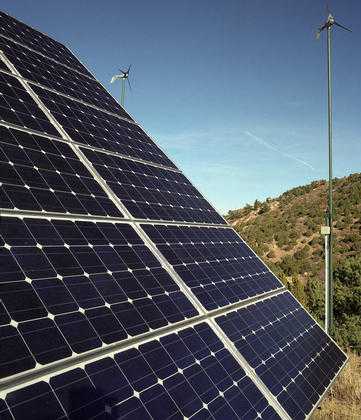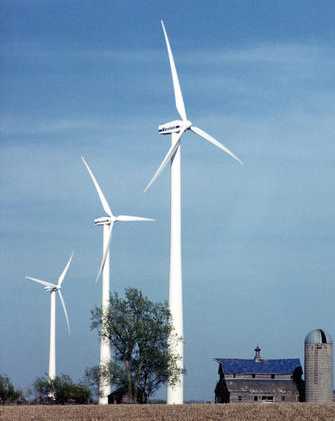on Markets, Policy, Investment, and Future Pathways
by Eric Martinot


|
Renewable Energy Information on Markets, Policy, Investment, and Future Pathways by Eric Martinot |
 |
 |
Also in 2001, The Hague published an environmental policy plan. The basic objectives are to make the municipal governement "CO2-neutral" by 2006 and the entire city CO2-neutral in the longer-term. "CO2-neutral" means that all CO2 emissions are either eliminated or offset by emissions reductions elsewhere.
The city is currently trying to learn the lessons from 15 demonstration projects that have been described in a "sustainable projects construction book" issued in September 2004. It envisions future visions, policies, grant schemes, and oversight of both the overall process and individual projects implemented by the private sector. The city has allocated budget for sustainability, and has one million euros to spend from 2004-2008. One project moving ahead is a district-heating supply plant utilizing seawater heat pumps. Other projects for energy-efficiency performance advise, wind turbines, and heating from solar and geothermal heat pumps are anticipated.
The city's approach is to lead but to allow the private sector to do the bulk of the work. As the Vice Mayor wrote, "When the municipality takes on the role of lead player, it is surprising to see how many organizations in the community and how many private companies are willing to join in efforts towards sustainable development."
Households in The Hague are already significant consumers of green power; 30% of all households are buying green power.
In 2001, The Hague commissioned a profile of the carbon dioxide emissions from the city. It found that for the 220,000 homes, residential emissions were 1.1 Mt/year, or about 5 tons/home. Transport emissions were 0.4 Mt, or about 2 tons/home. And the combined emissions of industry, commercial, and public sectors were 1.0 Mt/year. (Not all of these emissions can be attributed to residents on a per-capita basis, as the goods and services provided may be used by others outside of the city. Nevertheless, the "gross" per-capita CO2 emissions for The Hague, a city with very little heavy industry, are 2.5 Mt/year for 463,000 residents, or 5.4 tons CO2/person/year.)
Page updated December 10, 2004
Photo credits C. Babcock, W. Gretz and
DOE/NREL Photo Information Exchange